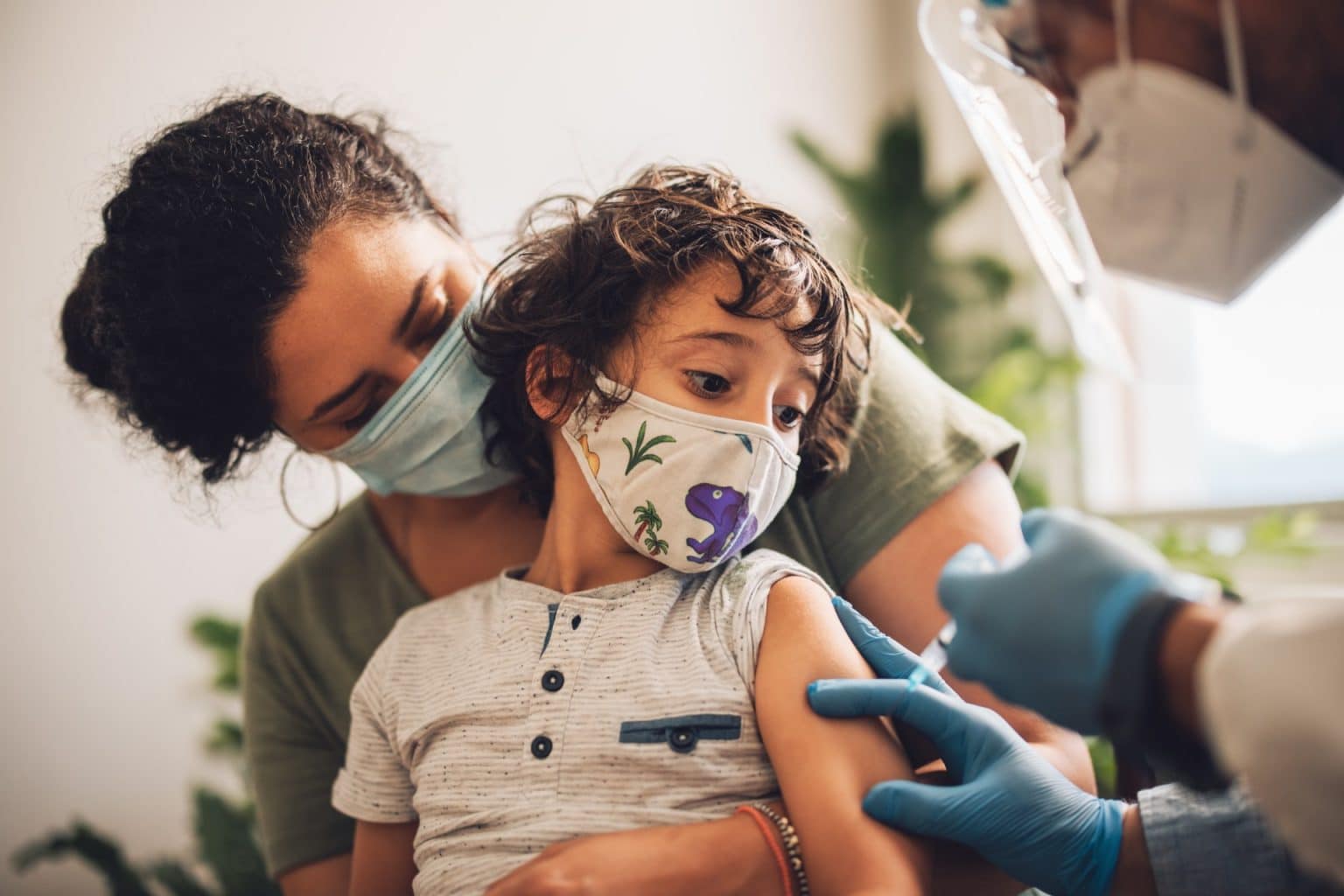Receiving a vaccine can be challenging at any age, but kids get a lot of needles in a short window. Canadian immunization guidelines recommend that a child should receive more than 20 needles before the age of 18—many of them take place before kids start school. Those early immunization experiences can make a child anxious about receiving needles in the future, but you can help your little one through the process. Consider these strategies to help them cope with their next shot.
1. Don't tell your child not to worry
It can actually have the opposite effect and increase anxiety. “Parental reassurance makes kids feel worse,” says Dr. Christine Chambers, a professor of paediatrics and psychology at Dalhousie University, and a Canada Research Chair in children’s pain. “We’re not really sure why, but there is some evidence that it serves as a signal to children that their parents are anxious.” If, like 10 percent of the adult population, you have your own fear of needles, deep breaths could help.
2. Try a topical anesthetic cream
Have OTC options like EMLA, Ametop or Maxilene on hand any time your kiddo is expected to be poked. “They have been shown to significantly reduce pain,” Dr. Chambers says. They should be applied to the skin approximately an hour before the doctor’s visit. Consult your pharmacist to ensure proper application.
3. Pay attention to physical body positioning
Dr. Chambers and her colleagues recommend cradling small children, or breastfeeding and/or feeding sugar water (one packet of sugar with two teaspoons of water) to infants undergoing painful procedures. “Not only are these comforting to the child, they are actually analgesic, which means they reduce pain.”
4. Watch what you say after the procedure
“Our research has shown that what children remember about a painful procedure (versus what actually happened) is a powerful predictor of how much pain children will experience at a subsequent procedure. Take a moment after the appointment to praise your kid for a job well done and remind them how well they coped. It might influence how well they do next time,” says Dr. Chambers.
What to expect post-needle
It’s pretty normal for kids to experience fussiness or trouble sleeping, soreness and redness at the injection site and even a low-grade fever. But if your child exhibits severe swelling, spikes a high temp, has a tough time breathing, breaks out in hives or seems lethargic, seek immediate medical attention.
Originally published in the Fall 2018 issue.









